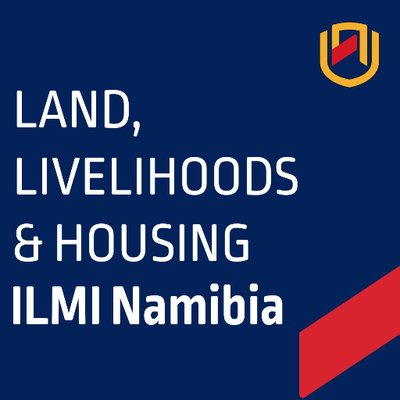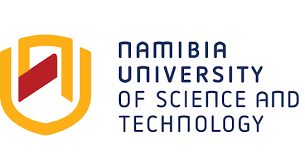Location
The Integrated Land Management Institute is a centre of the Faculty of Natural Resources and Spatial Sciences (FNRSS) at the Namibia University of Science and Technology (NUST) committed to develop reputable and multidisciplinary research and public outreach activities in the field of land, administration, property, architecture and spatial planning.
It was originally established 2006 and conceived as an arm of the Department of Land Management in order to undertake applied research, consulting services, and training courses.
As from 2015, activities at ILMI will be guided by the Land, Livelihoods and Housing programme, while remaining open to new collaborative research, training, and outreach activities.
ILMI has a space at the Department of Land and Property Sciences (DLPS) and most events currently take place at the Seminar Room of the Department of Architecture and Spatial Planning (DASP). Smaller events and meetings take place at the CLPS House.
The Department of Land and Property Sciences (DLPS) has recently been recognised by the African Union (AU) through the Land Policy Institute (LPI) as a Centre for Excellence in Land Governance for Africa (NUST - NELGA Hub).
Members:
Resources
Displaying 6 - 10 of 26Land reform
A lot of aspects are commonly subsumed under the concept land reform. These range from redistribution to tenure and agrarian reform. What do these different concepts mean? Agrarian reform: this is the broadest term and refers to attempts to change the agrarian structure of a country. It typically includes land reform, tenure, the reform of agricultural support systems and the reform of the credit system.
A short socio-spatial history of Namibia (ILMI Working paper 9)
include a trajectory of Namibia’s socio-spatial development for the reader to engage with my work. The term ‘socio-spatial’ is to stress the spatial dimension within social processes. To have simply left the term ‘spatial’ would have missed the point of spatial production as a social process. In other words, space per se is not what is at stake here, but rather the dialectic relationship of how space is produced and at the same time it transforms those who inhabit it. Therefore, what I would like to encompass is not merely town planning schemes, houses, or public spaces, but also spatial so
Ecosystem services and small-holder farming practices -between payments, development support and right- an integrated approach (ILMI Working paper 10)
Small-scale farmers in north-central Namibia face numerous challenges, ranging from low crop yields, high rainfall variability and land degradation which is threatening the long-term productivity of the land, to social changes that are reducing the work force available for farming. This paper aims to assess existing land use practices (LUPs) and to determine their relationship to ecosystem services (ES). As agriculture (crop and livestock farming) is the dominant land use in northern Namibia, it is the main driver influencing environmental services and will be in the focus here. We suggest
Urban land reform in Namibia
This document outlines some pertinent questions regarding urbanization in Namibia, provides central policy recommendations and identifies relevant research gaps to guide the policy debate on urban land reform as part of the 2nd National Land Conference scheduled for 1-5 October 2018.
The ABC Model
How does one build up an analysis? And how does one create the link between the individual partial-analyses
in a problem-oriented project work? These are the two main issues that this booklet gives an overview of.
This document is a presentation of a way in which an analysis, a sub-project and a project can be structured.



